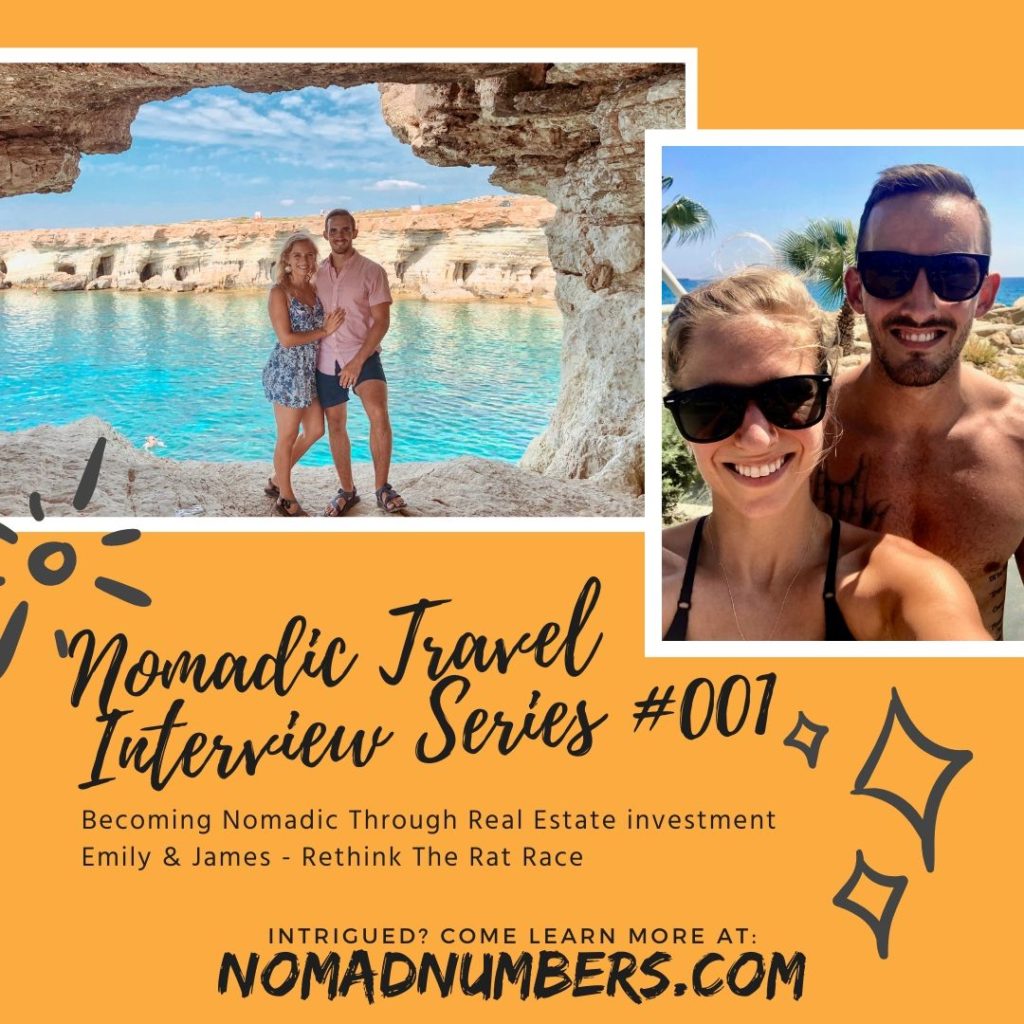
This interview is part of our interview series, where we curate stories of regular people that decided to design a life they love. (click here to learn more).
Emily & James from Rethink the Rat Race
Some links to the products mentioned below are affiliate links, meaning that if you click and make a purchase, Nomad Numbers may receive a commission at no additional cost to you. For more information please review our disclaimer page.
We were introduced to Emily & James by our friend Jessica (@TheFioneers). We later learned about their incredible journey and had to reach out to them to share it. While we felt that retiring from a regular job in our mid-30s was a good achievement, wait until you hear how James and Emily leveraged geo-arbitrage, an aggressive real estate investment strategy and a positive mindset to become financially free in their 20s. They had a really clever way to reach early retirement… well earlier.
As of 2019, Emily is a 27 year-old former systems engineer with a passion for leading a happy, healthy life and a goal of having an unconstrained life to travel the world with the freedom to take advantage of every opportunity that life brings. James, her husband, is a 28 year old former medical district manager who is obsessed with financial and physical health.
Both Emily and James grew up in very modest families in the US. Like many kids around them, nobody taught them how to be successful with money. While Emily’s parents were conservative with money and lived well within their means, Emily and James felt that spending money was a way to prove that they weren’t poor.
They had their wake up call when they found themselves $180k in debt trying to portray that they were successful which led them to discover their path of Financial Freedom because they believed that FI would help them lead a life free from the constraints of work and the worry of needing a weekly paycheck. They leveraged real estate to build just enough passive income that they can now live and travel around Cyprus, having the best time of their lives doing what they love the most, which means spending time together, exercising, exploring, and traveling.
Let’s hear from Emily & James!
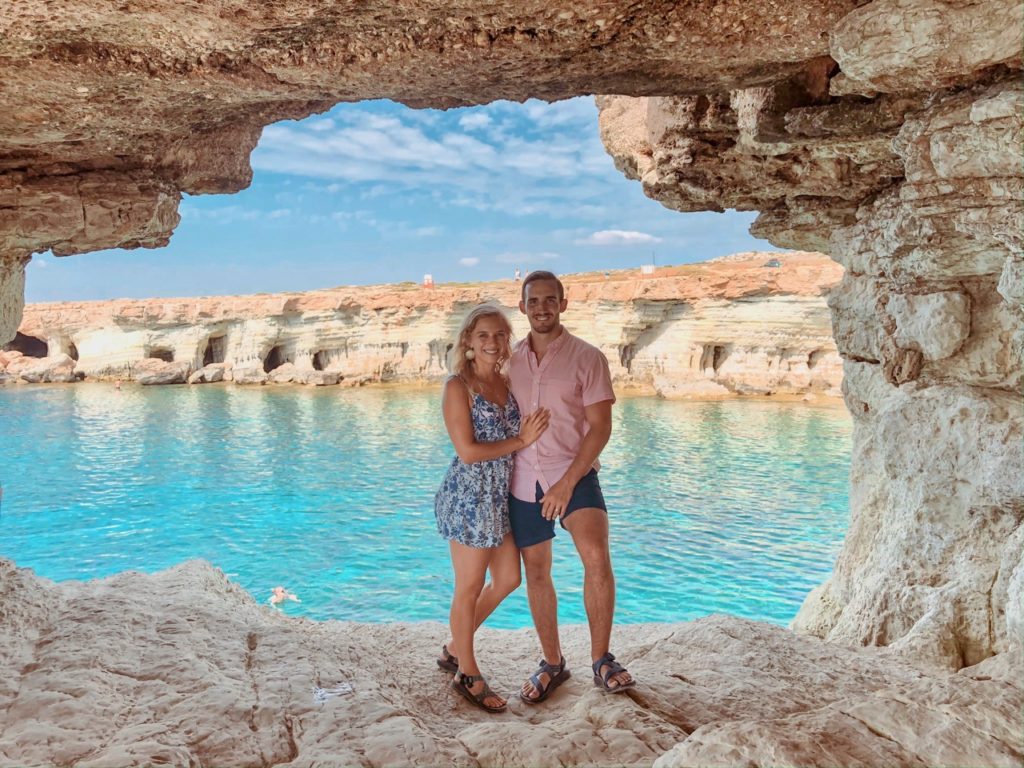
Tell us about yourself: Who are you? Which country do you come from/call home?
Emily & James (E&J): We are James & Emily Lowery, former professionals who have early retired at 28 and 27 years old respectively. We are currently living in and traveling around Cyprus, but we are from the US and call it home.
Lifestyle change
What does a typical day in your life look like for you today? And how does it differ from your lifestyle before?
Emily & James: On a typical day, we wake up without alarm clocks. James gets up around 7:00 while Emily gets up around 9:00. Once we are both up, we make a cup of coffee and walk to the gym. After the gym, we eat around lunch. After eating we either hop in the car and explore unfamiliar areas, or we walk to the beach. In the evening, we are either working on our site, or fixing up the apartment that we are living in at the moment. This differs incredibly from our lifestyle before in that we both had to wake up earlier to go into the office at our employers. From there, we would both go to the gym, but we rarely saw each other before 4:00 or 5:00 pm. At that point, we would prep dinner and either work on a property that we were trying to get rent ready, or crash on the couch and binge watch Netflix.
You daily agenda seems to have drastically changed since you retired from your 9-5. What would you say is now the key factor driving the choice you are making daily? How has this change from before?
E&J: The key factor now is whatever we decide to do. This varies daily depending on how motivated or tired we are. This has changed from before because we were forced to maintain some level of output due to having to be at work.
What led you to decide to change your lifestyle?
E&J: We both wanted to design a lifestyle that we enjoy. For us, this meant ‘working’ when, where, and on whatever we wanted to.
Since you no longer have to go to an office to receive income, has the definition of “work” change for you and can you explain what “work” project you are focusing on at the moment?
E&J: The definition of work for us hasn’t changed, but we definitely see it in a different light now. Our ‘work’ project that we are focusing on at the moment is our blog. We were going to start a new travel blog, but we decided to post more about travel on our current blog.
Now that you are spending more time together, are there any challenges with spending 24/7 with your spouse? Was there any adjustment you made to your schedule to keep a healthy balance (if applicable).
E&J: The challenge of spending 24/7 with your spouse is that they are always there when you get frustrated and it is easy to vent to them, even if it’s a little too much. One of the adjustments we’ve made is allotting time apart from each other to work on individual things.
How long did it take you to becoming financially free? Why did you decide to reach FI? What were some of the challenges you had to face along the way?
E&J: It took us three years to become financially free. We decided to reach FI because Emily was unhappy at her job, and James’s company had a ‘restructuring’ that led to a few positions being eliminated. This showed us that even though he still had his job, while we were working for other people there was never 100% certainty about the future.
Some of the challenges we faced along the way were spending less time with friends. When spending money was the most common way to spend time together, and one person cuts back on that it’s hard to maintain consistent time together.
What did your friends and family think of your plan to become financially free? What did they think when you announce them that you will be quitting your day to day job and leave the US to travel/relocate?
E&J: There were quite a few different reactions. When we told people our goal to retire by 30 some family members told us to be realistic with our goals and dreams. Others were ecstatic about us moving abroad and wished they could come with us. Everyone was supportive in their own way, but it’s a hard concept for some people to grasp.
Tell us one belief that is held up by society as ‘common sense’ but that you think is ridiculous/silly/backward and why.
E&J: One belief that is held up by society that we feel is ridiculous is that any real estate is a good investment. People always say ‘They aren’t making more land’. While we are real estate investors, and real estate income funds our lifestyle, we also recognize that many people make poor buying decisions because they are under the impression that they will be able to rent or resell at a profit, and that isn’t always true. We fell into this trap and made a poor purchase ourselves, and were happy to be out of it even though we lost over $20k.
Travel
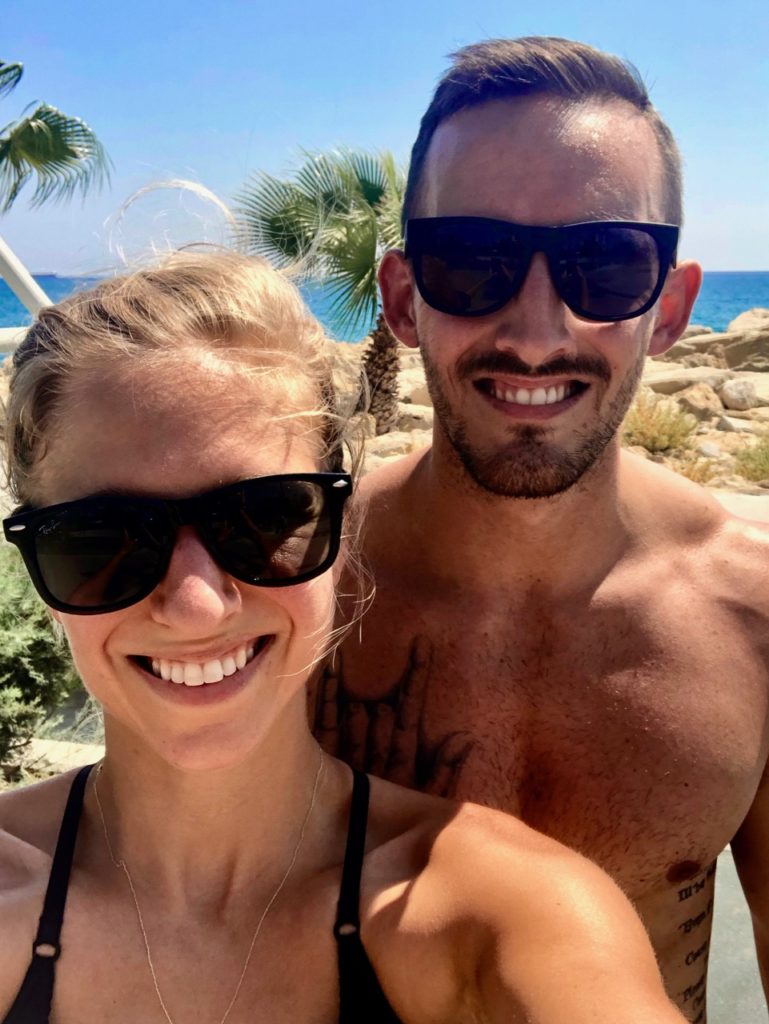
How would you describe your travel style?
E&J: Laid back. We have a list of things we would like to do, but we have no itinerary and like to do whatever we are feeling that day. In our opinion, spending more time in one city is preferable to stressing over fitting two or three cities into the same amount of time.
If you could never travel again and could pick any city to be confined to, where would you pick? And why?
E&J: Limassol, Cyprus. It is an ancient city with ruins, castles, and a walkable old town. However, it is also very modern and has a very diverse population. It is a large enough that it has all the amenities that we could want or need, but it’s also dense and small enough that walking is easy. Limassol has nice beaches, a great waterfront promenade, and gorgeous marina. Great food at cheap prices. Overall a very low cost of living. We don’t enjoy the cold, and with very mild winters, Limassol seems like the perfect spot.
How much stuff do you travel with?
E&J: Typically James goes with just a carry-on while Emily uses a carry-on and a personal item. We decided to travel with only luggage that we personally have on us because our bags have been lost on international trips before. We’ve also had to hop off a plane at the last minute and have missed flights and having all our things with us is comforting in case our plans unexpectedly change.
What’s something you pack that’s not absolutely essential but you like having it?
E&J: A travel steamer (here is the one we currently use) for our clothes.
Spending
How much money do you spend on travel per year? How many days of travel does this represent? How much does this represent per day and per person?
E&J: This is tough to answer as we have recently transitioned into early retirement and traveling more, but also traveling less like tourists. We are currently averaging $28 per day and per person during our time in Cyprus. (or about 20K per year as a couple)
Do you have a rough estimation of the cost of living for a month (and eventually a year) in Limassol. If possible would you have a rough breakdown per key spending category? (ie. accommodation, groceries, restaurants, entertainment & transportation).
E&J: Here is the breakdown of our monthly spending (note: this data is for September, which has been our first month of nomadic travel)
| Spending Category | Monthly amount |
|---|---|
| Accommodation | $300 |
| Living Expenses (Bills, …) | $41 |
| Groceries | $382 |
| Dining out / Take-out | $160 |
| Activities (incl. gym membership) | $230 |
| Health Care / Health Insurance | $113 |
| Local Transportation | $109 |
| Monthly Total | $1,335 |
What do you mean by “traveling less like tourists”? What are the major lifestyle change that you are making by doing so?
E&J: We frequent more local restaurants and markets. We are less rushed to get all the sights in so we can wait until it’s shoulder season or off season when prices are better. We walk much more. Also, we have more time to connect with locals and find places that tourists don’t necessarily know about.
How do you fund your travel (savings/work whilst traveling/other)?
E&J: We fund our travel through credit card travel rewards and real estate income.
Community
How do you meet people when you travel? Do you have any tips for people that are having challenges meeting people while traveling?
E&J: James is pretty outgoing and strikes up a conversation with about anyone. With that said, we meet people with similar interests by going to the gym and talking to people at the various free events that we attend.
We’ve had success with meeting people through local events we find on Facebook. Also, we look for familiar things to ourselves. We met some locals that went to University in our state just because I asked him about the Alabama gear he was wearing.
Last but not least
What is one resource (blog, podcast, book besides your own) you recommend for those that want to pursue your lifestyle?
E&J: The FI Show podcast hosted by Cody Berman and Justin Taylor. The show hosts all kinds of people living alternative lifestyles. From professional tennis players to mailmen, they cover incredible stories. A great episode is ours, of course! But really, there’s an episode with Rob from Getting Canned, and that’s a good one.
What advice do you have for others who are considering this type of lifestyle?
E&J: You can’t plan for every single contingency. Set guidelines and make plans, but if something changes, don’t hesitate to make a decision on the fly. As a first step, you can consider to start tracking your expenses. You’ll never know how much money you’ll need if you don’t know how much you’re spending and where it’s going.
E&J: We tend to romanticize things in our heads when we daydream about leaving our job. Don’t get disappointed or discouraged if your new lifestyle isn’t the cure-all that you hoped it would be. Just make changes and adjustments where you can until you are happy with the results.
Rapid Fire Questions
| What is your favorite travel destination & why? | Dubrovnik, Croatia. It’s becoming more popular recently, but with a gorgeous walled old-town, beaches, nice people, and good food all at a reasonable cost, it’s hard to beat. |
| What was the most creative thing you’ve ever done to save money during your travels? | The most creative thing we’ve done to save money during our travels was taking two trips walking from one hotel to another, carrying a bicycle and then bringing our bags to avoid paying for an Uber. We saw more of the city, got in some exercise, and saved money. |
| What was your biggest travel mistake? | Our biggest travel mistake was trying to fit too many cities and countries into too little time because we felt too rushed to settle into a place and the entire trip was too scheduled and hard to manage if there were any unexpected changes. |
Thank you Emily & James for sharing your story along with some gorgeous pictures of you two.

If you want to know more about Emily & James, you can find them on the following platforms:
- Blog: RethinktheRatRace.com
- Facebook: https://www.facebook.com/RatRaceRejects
- Instagram:@rethinktheratrace
- Twitter: @rethinkratrace
The Bottom Line
Here are the main lessons we took away from this interview:
- Lesson 1 – “We […] wanted to design a lifestyle that we enjoy” – This is a key takeaway that totally resonates for us. By focusing on what makes you happy, you can design a life that is really true to yourself. If you want to know more about lifestyle design, we highly recommend reading “Designing Your Life: How to Build a Well-Lived, Joyful Life”, by Bill Burnett & Dave Evans. Also check out our origin journey).
- Lesson 2 – “We […] made a poor purchase [decision] ourselves, and were happy to be out of it even though we lost over $20k” – By cutting losses earlier, Emily & James stopped the bleeding and refocused their energy forward which led to better results in the long term. This principle not only applies to investments but can also apply to your possessions(through minimalism) as well as your friends and community.
- Lesson 3 – Geo-arbitrage can let you reach your freedom sooner. By picking Cyprus, a country where they expect to spend about $20K per year, Emily and James are using geo-arbitrage to lower their cost of living which also accelerated their accumulation phase. There are a lot of countries (like the few we visited) with better healthcare and lower cost of living than major US cities.
Call to action
What do you think about this story?
Would you ever be (mostly) living off real estate passive income through aggressively purchasing investment properties and relocating to a much lower cost of living country to live the life you want?
We would love to hear from you, so feel free to share your feedback by leaving a comment below.
Sometimes we need to hear about others making unconventional decisions before we can have the confidence to make our own. If you have (or are on a path to) an unconventional journey to improve your life that has a travel component to it and are interested to share it, please reach out to us as we would love to feature your story.
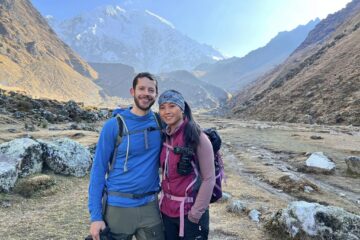
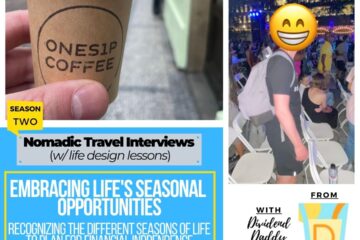
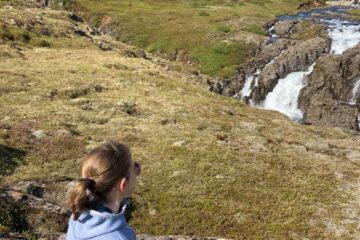
2 Comments
Sharing stories of nomads during the coronavirus pandemic - Nomad Numbers · March 25, 2020 at 10:11 am
[…] Our interview with James & Emily: [Interview #001] Becoming Nomadic Through Real Estate investment. […]
What we learned from interviewing nomadic travelers - Nomad Numbers · May 16, 2020 at 5:06 am
[…] Emily and James reached their financial independence goal in 2 years by aggressively purchasing rental properties to build an investment of a portfolio of 650K that they can use to live off 35K / year. […]